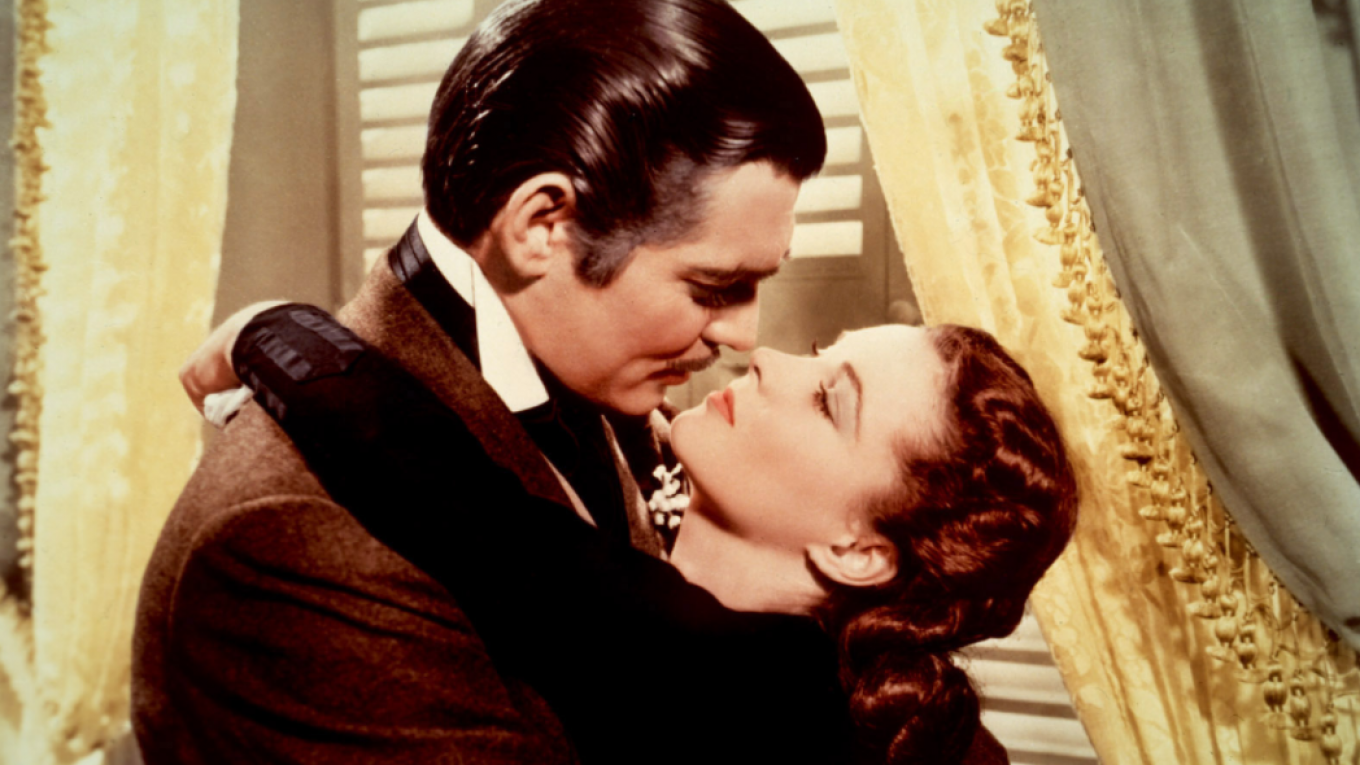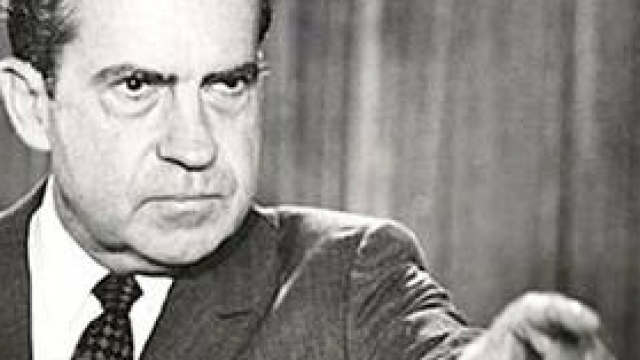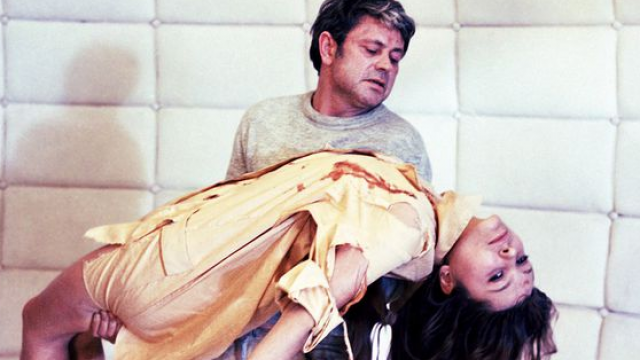It’s Meet the Moviemakers Week on Moscow TV, with fine profiles of four great directors from Russia and abroad — plus two showings of Hollywood’s all-time greatest movie. Viewers also get some keen insights from the world’s best Russian-English interpreter and a good look at two men of letters whose work helped bring down the USSR. Here’s the where and when:
Widely regarded as the best Russian-English/English-Russian interpreter of his generation, Viktor Sukhodrev (1932-2014) worked with every Soviet leader from Khrushchev through Gorbachev – and thus with their English-speaking counterparts as well, giving him a unique perspective on a half-century of world events and the people who made them. Sukhodrev was also a natural storyteller, and the Who’s Who documentary-interview “The Viktor Sukhodrev Photo Album” (2009) is the perfect format for him: at home in a comfy chair, the interpreter-diplomat leafs through his impressive albums, stopping to relate anecdotes about world leaders, friends in the arts community, his (large) family and so on. Much of his narrative is pure gold — and a few un-pulled punches in it will surprise you. Directed by Alexander Lipnitsky, this is informative and entertaining TV of the best sort as well as a melancholy reminder of what the Ministry of Foreign Affairs has come to without people of Viktor Sukhodrev’s caliber and common sense.
The Viktor Sukhodrev Photo Album Фотоальбом Виктора Суходрева. Who’s Who, Tuesday at 3:00 a.m. & 12:00 p.m.
That the subjects of the documentary “Elem Klimov and Larisa Shipiko” (2016) were outstanding filmmakers is well known. Klimov (1933-2003) gave us the classic comedy “Welcome, or No Trespassing!” (1964) and the devastating war drama “Come and See” (1985); Shepitko had made the international prize-winning drama “The Ascent” (1976) and five other notable features before dying in a car accident in 1979 at age 41. And while most people know the two were husband and wife, few realize the extent to which this rare combination made for “an amazing family story” with “complicated relations between the two masters” and a “richly colorful life dominated by their work.” This revealing documentary has actors Alexandra Rebenok and Alexei Vertkov reading letters of the principals and Tatyana Goryaeva, director of the Russian State Archives of Literature and Art, commenting on the newly-available Klimov-Shepitko materials therein. Tune in for a telling look at two memorable filmmakers through the unique dynamic of their life together and common profession.
Elem Klimov and Larisa Shepitko Элем Климов и Лариса Шепитько. Kultura, Tuesday at 6:30 p.m.
The importance of Alexander Solzhenitsyn to Soviet history could be fairly gauged by the plausibility of the argument that two of his books stopped it. “One Day in the Life of Ivan Denisovich” (1962) opened the door to the real Soviet past just enough for the country to see in, while “The Gulag Archipelago” (1973) ripped the same door off its hinges, starting a collapse of the jerry-built edifice behind it in less than a generation. This week Kultura debuts two parts of the revealing new documentary “Alexander Solzhenitsyn” (2016). Part one, “The Unseen,” chronicles the stories of the writer’s secret helpmates — co-conspirators for truth who risked much for themselves and those close to them by hiding manuscripts, making copies, smuggling texts abroad and diverting the authorities as best they could. Part two, “Solzhenitsyn and Struve,” presents the work of the Soviet author and the French Russianist-publisher Nikita Struve (grandson of Pyotr) as a single labor aimed at nothing less than “the revival of consciousness in Russia.” The co-operation between the two offers a rare “dual seminar” by two real experts on “understanding the lessons of Soviet history.” Could there be a more timely theme for a documentary today?
Alexander Solzhenitsyn Александр Солженицын. “The Unseen”“Невидимки“. Kultura, Wednesday at 9:15 p.m. & Thursday at 3:10 p.m.; “Solzhenitsyn and Struve”“Солженицын и Струве”. Kultura, Friday at 3:15 p.m.
Plenty of people will tell you that “Gone With the Wind” (1939) is the greatest film Hollywood ever made — and plenty of those people will be Russians. Yes, David O. Selznick’s four-hour epic of the American Civil War rates a very impressive but hardly surprising 8.2/10 on the Western-weighted IMDb film-fan site; yet on Russia’s KinoPoisk it scores even higher — an extraordinary 8.4/10 (from almost 100,000 voters). This isn’t really counterintuitive, when you think about it: does anybody love epic war movies, historical romances, family chronicles and willful, captivating heroines more than Russian audiences do? For GWTW, that’s check, check, check and check.
The differential in the film’s popularity may well have grown over the last eight years, too. “Gone With the Wind” unfortunately plays to racial stereotypes that sit well with the legions here who despise America’s current president. Perhaps even more tellingly, moreover, the Confederate epic can be seen as promoting a regrettable past to the level of admirable myth; as Russia is now erecting statues to Ivan the Terrible and Josef Stalin, such an approach may be finding fervent new followers here. Anyway, ponder all this as you sit down for an evening in the cinematic version of the Old South. You’ll be greatly entertained, whatever your sympathies — and you’ll also learn what the Russian is for “Frankly my dear, I don’t give a damn.”
Gone With the Wind Унесенные ветром. TV1000, Thursday at 8:10 p.m. and Friday at 10:10 a.m.
Movie fans score again late Friday night as Channel 1 airs “Hitchcock/Truffaut” (2015), a French-American documentary film that draws on Francois Truffaut's eponymous book on his idol Alfred Hitchcock. France’s young and inventive New Wave director and critic went to Hollywood in 1962 to interview America’s master of suspense, and the two talked for some eight days at Universal Studios. The resulting volume proved a classic discussion of moviemaking, and last year “returned” to its own genre with success both great and broad: this documentary is “an affectionate and well-crafted tribute to a legend” and “essential viewing for [veteran] cineastes while still offering rich rewards for neophytes.” Everybody wins here, and Russian film fans of all varieties will enjoy this Kent Jones production as much as their European and American counterparts have.
Hitchcock/Truffaut Хичкок/Трюффо. Channel 1, Saturday at 12:35 a.m.
Mark H. Teeter is the editor of Moscow TV Tonite on Facebook
A Message from The Moscow Times:
Dear readers,
We are facing unprecedented challenges. Russia's Prosecutor General's Office has designated The Moscow Times as an "undesirable" organization, criminalizing our work and putting our staff at risk of prosecution. This follows our earlier unjust labeling as a "foreign agent."
These actions are direct attempts to silence independent journalism in Russia. The authorities claim our work "discredits the decisions of the Russian leadership." We see things differently: we strive to provide accurate, unbiased reporting on Russia.
We, the journalists of The Moscow Times, refuse to be silenced. But to continue our work, we need your help.
Your support, no matter how small, makes a world of difference. If you can, please support us monthly starting from just $2. It's quick to set up, and every contribution makes a significant impact.
By supporting The Moscow Times, you're defending open, independent journalism in the face of repression. Thank you for standing with us.
Remind me later.







